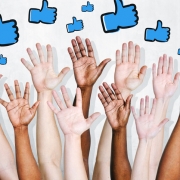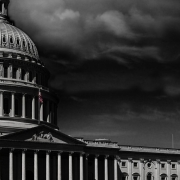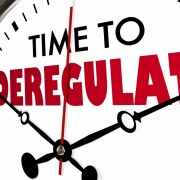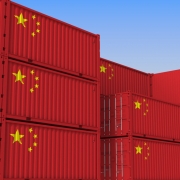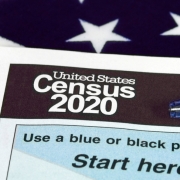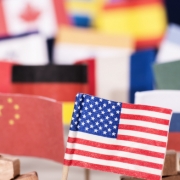Economics For Individuals: Does Twitter Have “Unimaginable Power”? Of Course Not. Only Its Users Do.
Nick Saban added yet another national championship to his resume on Monday night. College football coaches, assistants, and agents everywhere celebrated. Why’s that? The answer is simple: Saban’s brilliance as a head coach raises the price of hiring every coach and assistant not Saban. Other schools, seeing what Saban has achieved, spend fortunes in a frequently fruitless search for the next Saban. Paraphrasing Warren Brookes, in every walk of life we’re blessed by the genius of the very few.
The Saban Effect reveals itself in the business world all the time. In a year when the shares of “Big Tech” companies soared, so did IPOs for much smaller ones. So did VC investments in even smaller tech firms. The three situations are related. Rising valuations for the Big Five or Six or Seven technology companies redound to the smaller ones. That’s because investors are relentlessly searching for the next “Big Techs.” What lifts the very few generates intense interest among investors in their eventual replacements. Stress replacements. Please read on.
The idea of replacements for today’s tech eminences brings us to the great Gerard Baker of the Wall Street Journal. His weekly opinion pieces are can’t miss, and this week’s was no exception. Writing about what happened at the Capitol last week, Baker made the essential point that in an effort to justify the doings after the “Save America” rally, “President Trump’s supporters have been working overtime on the moral-equivalence shift.” While he doesn’t need me to say it, Baker nailed it. Republicans, or Trump supporters don’t lift themselves by comparing what they do with the despicable actions of the other side. Better is it to always operate on a higher level. Republicans don’t break things, and don’t wreck the property of others. Period.
At the same time there was disagreement with one point Baker made. Explaining the undeniable uniqueness of Donald Trump, and why opportunists in the GOP won’t replace him, Baker observed that Trump “succeeded in large part because he spoke to the frustrations of so many Americans who have been disdained and discarded by a global elite that enjoys unimaginable power and privilege – and wields it for its own gain.” On this point Baker missed.
It seems his underlying argument was that pockets of elites, think Silicon Valley in particular, have enormous economic power that redounds to Silicon Valley. No.
Indeed, it’s worth asking where Donald Trump would be today had Twitter, Facebook, and other elite tech creations not been around in 2016. Their common use by the everyman is what helped make Trump a Republican presidential primary force, and an eventual White House occupant. These companies are big, and carry enormous valuations, precisely because their use is extensive among those with the smallest of small net worths. The elites of Big Tech didn’t and don’t disdain or discard the proverbial Trump supporter as much their size and market cap signal a powerful understanding of those who pulled the lever for the New Yorker. It’s arguable their understanding is better than Trump’s.
After that, the “unimaginable power” of top technology companies is surely not something the individuals at the top of those companies are aware of. For elites like Jeff Bezos, Mark Zuckerberg, Sundar Pichai, and Tim Cook, they know better than anyone that power in the commercial space is a highly ephemeral concept. And if they’re not aware of this truth, their investors are. Think about it.
When the 21st century began, Amazon was regularly referred to as Amazon.org, owing to its seeming inability to make online sales profitable. Zuckerberg was in high school when 2000 dawned, but the simple truth is that as late as 2006 then social media giant MySpace had more daily visitors than Google did. Facebook was still a site used by well-to-do college kids. Apple was near bankrupt in 2000, but more important is that ahead of the iPhone’s launch in 2007, it was dismissed by the seemingly unbeatable Blackberry (remember it?) as much less than imposing.
How things change. Today’s Big Tech elites are aware of this. That’s why they spend tens of billions each year in pursuit of new ways to meet the needs of existing and future customers. They’re not spending fortunes on a rather opaque tomorrow because they think their present power is secure. Quite the opposite. They know commercial history, and they know that a few wrong moves or missed opportunities will render them the AOLs and Yahoos of the 2020s. Remember them? Oh yes, they were the gold standard of a burgeoning internet when the 21stcentury began. Once again, how things change.
So while the suspension of Trump’s Twitter account, Facebook’s ejection of the 45th president, and Amazon’s role in the disappearance of Parler may have conservatives marveling at the power of tech firms bent on insulting them, rest assured that all three of the aforementioned moves have Twitter, Facebook and Amazon unnerved. It’s hard enough to stay on top, only to potentially offend a large block of U.S. users. If Amazon won’t host Parler, someone will, or will host another would-be vanquisher of Twitter. Somewhere out there the company that will knock Facebook off of its perch similarly exists. Amazon too. Bank on it.
Why is the above assertion a certainty? The answer is in the enormous valuations investors have placed on Big Tech. They signal dominance, but also an eventual end to same. Sectors pregnant with trillion dollar companies are quite a bit more pregnant with IPOs and VC rounds that will fund the replacement of today’s giants.
Translated, if you have a problem with “Big Tech” and elites more broadly, then you should cheer their success. Indeed, high achievement begets the very investment that will result in those on top being replaced at the top. Nick Saban knows this, and so do the businesses that conservatives are oddly calling for government to neuter. Such a view is backwards. Power that is “unimaginable” is by its very name ephemeral.
